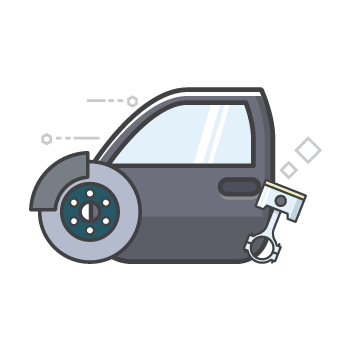How to Identify and Deal with Seizures
by Carolyn Lee Aug 21, 2023

A seizure can occur when brain cells malfunction and send electrical signals uncontrollably, resulting in symptoms affecting other parts of your brain and body. This irregular activity involving the nerves in the brain can become recurrent or chronic. When seizures become consistent, the condition is called epilepsy.
What is the difference between having a seizure and epilepsy?
Seizures are single occurrences of unusual electrical activity in the brain, while epilepsy is a chronic neurologic disorder that causes repeated seizures. So, someone could have a seizure but not epilepsy. Although seizures are a crucial symptom of epilepsy, several other situations can also cause them.
What are some of the causes of nonepileptic seizures?
Several conditions, including head injuries, fever, choking, liver failure, extremely high blood pressure, and stroke, can cause nonepileptic seizures.
Who is at risk for seizures?
Although anyone can get a seizure, some people have medical problems that could put them at risk. Children are more likely to have seizures and epilepsy, but many outgrow the condition.
How are seizures diagnosed?
A neurologist can diagnose a seizure based on your symptoms and specific diagnostic tests. A crucial part of diagnosing seizures is finding if there’s a focal point or specific area where your seizures start, which can make a significant difference in treatment.
What should you do if you see a friend, relative or stranger having a seizure?
If you witness someone having a tonic-clonic seizure (convulsions), stay with them and remain calm. You should avoid putting anything into their mouth, restraining, or moving them unless they are in danger. Immediately roll them onto their side to remove liquid or food from their mouth. Your goal should be to protect them from injury.
When should you call for help?
You should call for help if someone has a seizure for the first time; it lasts more than five minutes or if another seizure occurs before they recover from the first one. Call for emergency assistance if they don’t start to recover or are unresponsive for more than 10 to 15 minutes after the convulsions stop.
Seizures are often treatable. So, speak to your doctor to determine the underlying cause and receive treatment. If you have epilepsy, educate your loved ones on your diagnosis, the symptoms, and seizure first aid so they can assist you. Remember, you can use Find Yello to search for neurologists, doctors, hospitals, and related services.
Sources: Mayo Clinic, Hopkins Medicine, Cleveland Clinic, and Healthline.








